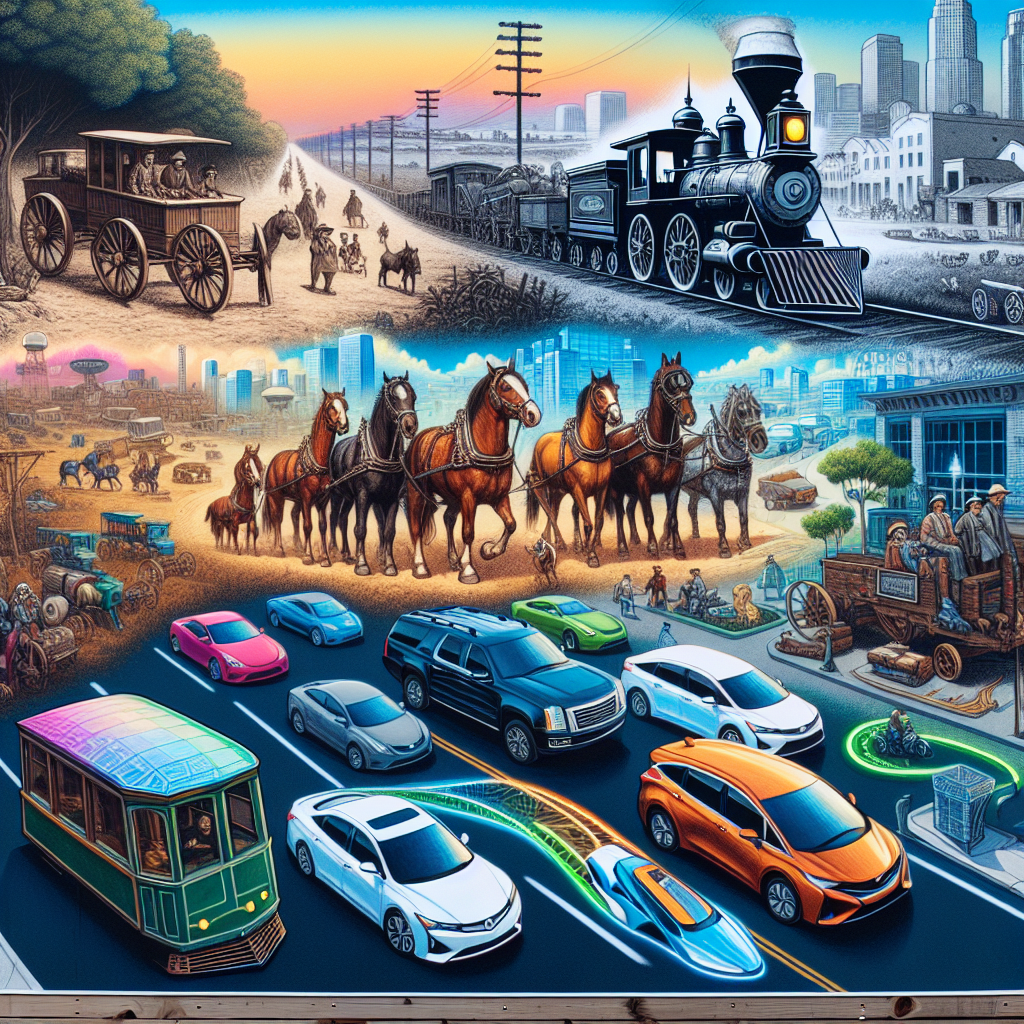From Horsepower to Hyperloop: The Incredible Evolution of Human Transportation

Imagine a time when the idea of transit was as simple as a sturdy horse or a wooden cart. Fast forward to today, and we find ourselves in an era where high-speed trains and electric cars redefine how we connect with the world. The story of transportation is not merely a history lesson; it’s a fascinating journey of innovation, adaptability, and dreams made real. Let's explore this transformative saga that shapes our lives in ways we often overlook.
The Dawn of Transportation: Horses, Carts, and Waterways
The origin of transportation dates back to ancient civilizations, where the wheel was a revolutionary invention. Initially crafted from wood, these wheels attached to carts allowed people to transport goods and themselves more efficiently. Imagine being a merchant in Mesopotamia, your wares loaded onto a cart as you traverse dusty trade routes. Meanwhile, the advent of sailing vessels transformed commerce, enabling societies to explore and trade across vast oceans.
The Age of Steam: Turning the Wheels of Change
The Industrial Revolution marked a significant turning point, heralding the age of steam. In the early 19th century, steam-powered locomotives birthed a new era of train travel. Suddenly, cities were no longer isolated but interconnected, allowing for the mass movement of people and goods. Think of how this innovation actually laid the foundation for our modern cities, contributing to urbanization, faster economies, and even the concept of the work commute.
The Rise of Automobiles: Freedom on Four Wheels
With the introduction of the automobile in the late 19th and early 20th centuries, personal transportation reached new heights. Henry Ford's assembly line processes made cars affordable, granting families the freedom to explore beyond their immediate neighborhoods. The once-distant idea of a "road trip" became a staple of suburban culture. This transformation brought about not just convenience, but also significant changes in lifestyle, economics, and even city planning.
Modern Innovations: Tech-Driven Transportation Solutions
Today, we’re witnessing a new wave of technologies that promise to disrupt traditional transportation yet again. Electric vehicles, ride-sharing services, and high-speed rail networks are just a glimpse into the future. Consider that by 2030, electric cars are expected to make up a significant portion of all car sales. So what does this mean for our carbon footprint and the sustainability of our planet?
Looking Ahead: A Future of Smart Transportation
As we gaze into the future, concepts like the Hyperloop and autonomous vehicles are no longer just theoretical; they're in development stages. These innovations promise to further shrink our travel times and reduce the environmental impact of transportation. Imagine boarding a pod that whisks you from one city to another in mere minutes—what would that mean for your commute, lifestyle, and even the economy?
Conclusion: The Endless Journey
The history of transportation is a testament to humanity’s ingenuity and relentless quest for improvement. As we stand on the brink of yet another level of transformation, it invites us to reflect on how each breakthrough has shaped our connections, cultures, and communities. Transportation is more than just getting from point A to point B; it’s about the journey, both literal and metaphorical, that drives our evolution. So, the next time you hop into your car or board a plane, take a moment to appreciate the marvels of engineering that make your travel possible.